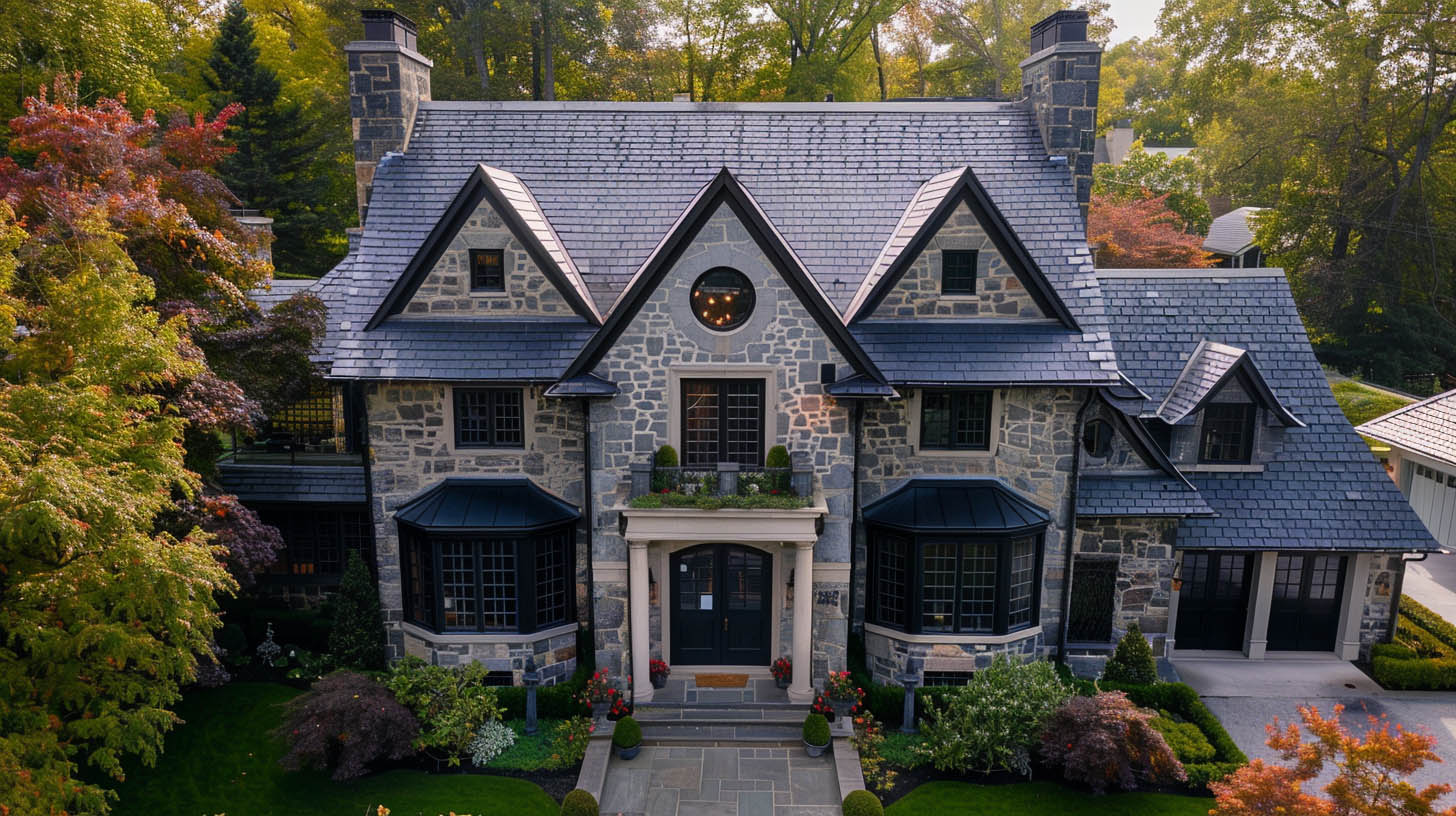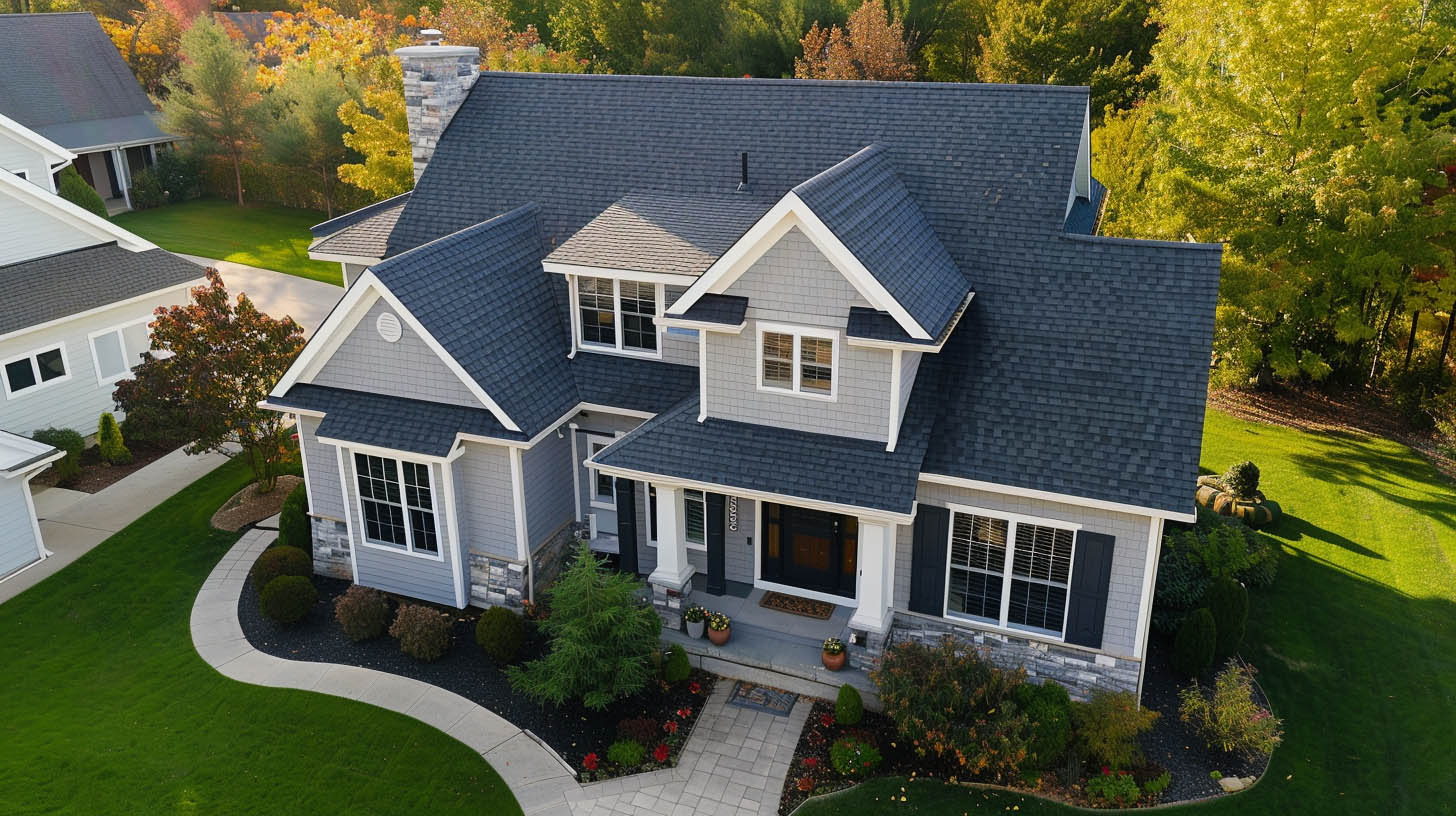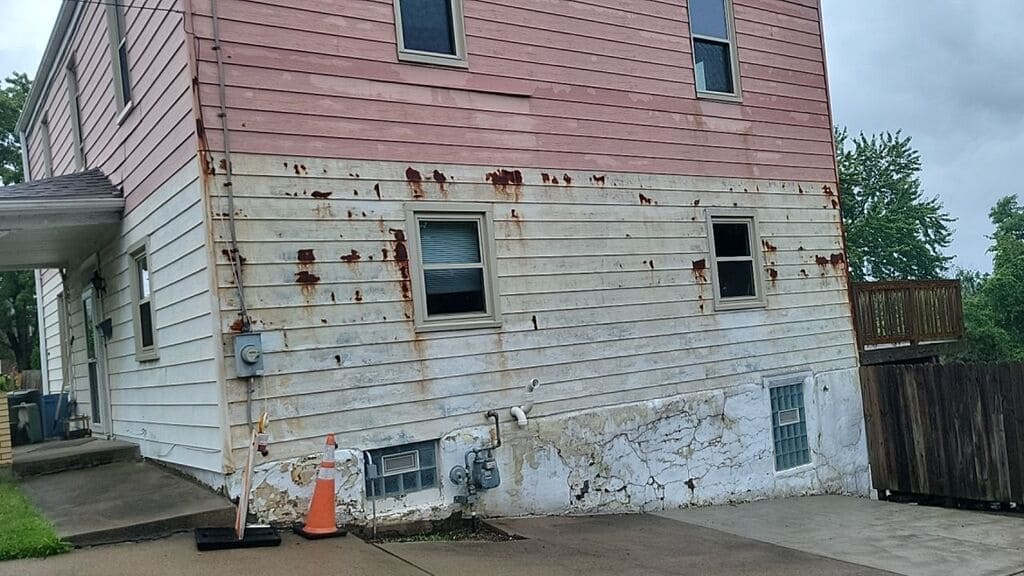

Have you examined the exterior of your house recently? This guide, Vinyl Siding Repair: When You Might Need It, will help you figure out what kind of damage can be fixed by simply repairing it and what damage needs complete vinyl replacement.
Ever wonder when vinyl siding should be replaced or repaired? Perhaps that time has come.
Some people may live in their homes for decades without thinking about replacing or repairing the siding, even though they may have replaced other “major” components, such as the furnace or roof, in the past. Vinyl siding lasts a long time, and many people simply don’t consider replacing it.
When to Replace Vinyl Siding
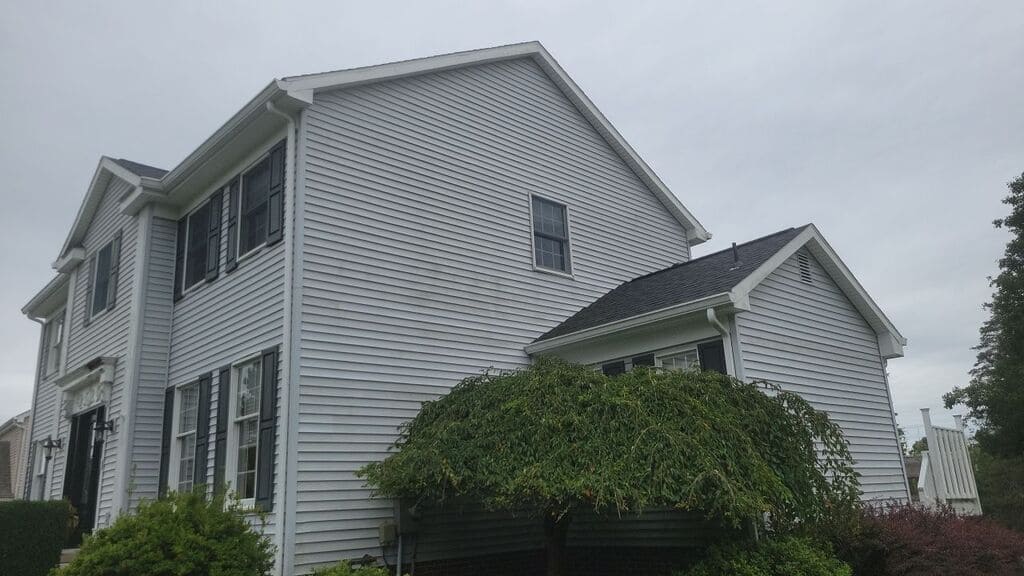
Vinyl siding problems can feel a bit tricky mainly due to not understanding what can be replaced or simply repaired. And when it comes time to replace your vinyl siding, it’s important to know when is the right time to do it. Vinyl siding is a popular choice for homeowners because it’s affordable and durable, but it will eventually need to be replaced. Here are a few things to keep in mind when deciding whether to replace your vinyl siding or not.
To Repair or Replace?
Siding repairs don’t have to be expensive or time-consuming. You can use a vinyl siding panels to replace the damaged ones without replacing the entire wall.
While these quick fixes typically work well, the areas that can be repaired easily are never large areas. There are certain signs you should look out for to prevent severe structural damage to your home, though. Otherwise, you may face some very costly repairs in the future.
There are many potential causes of siding damage, some of which are more common than others. Being aware of these potential causes can help you be better prepared in the event that your siding is damaged. Some of the most common causes of siding damage comes from hail, wind, rot, sunlight, mold/mildew, insect infestations, or human error.
Below, let’s investigate Vinyl Siding Repair: When You Might Need It.
Mechanical Damage
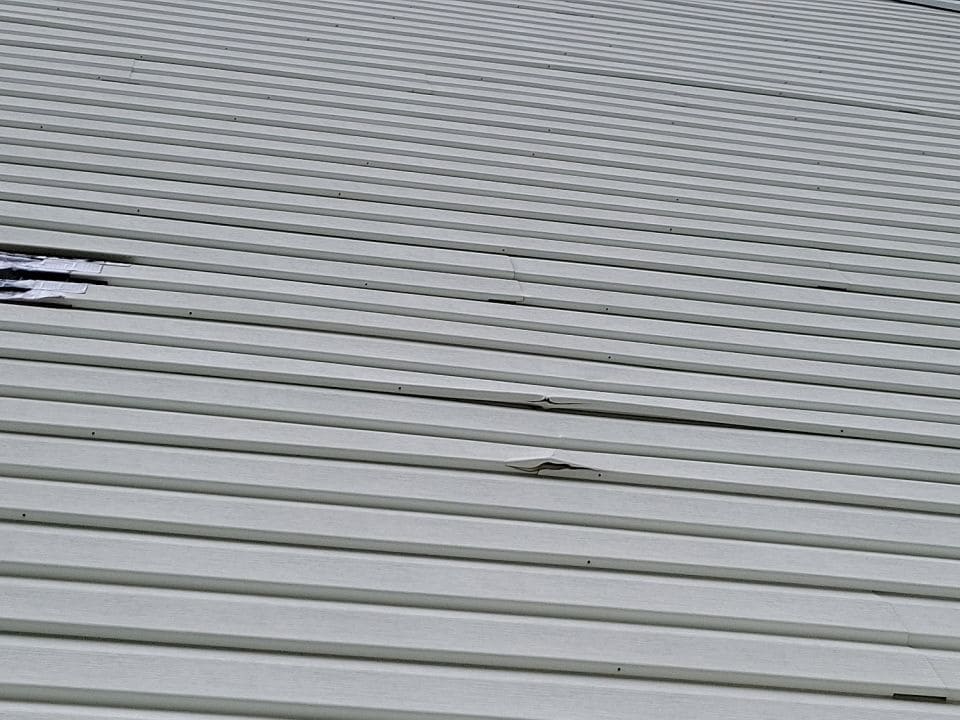
Mechanical damage is the damage that is inflicted on an object through a mechanical action. This can include anything from scratches to dents. It is important to be aware of the signs of mechanical damage, as it can lead to further damage if left untreated.
- Chips
- Crack in Vinyl Siding
- Dents
Damage by Temperature & UV-Rays
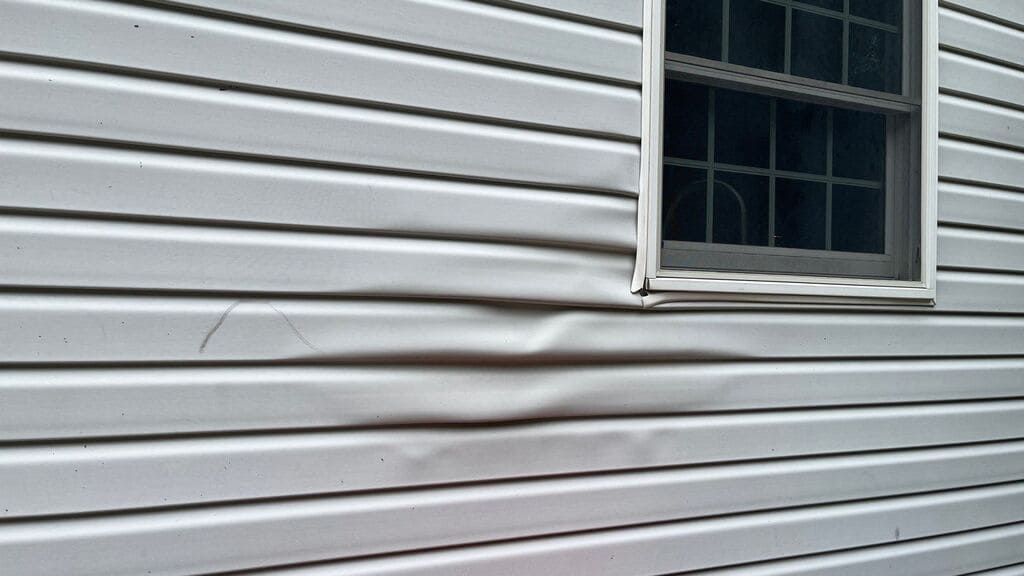
While vinyl siding is a durable and low-maintenance option for your home’s exterior, it’s not immune to damage from the sun (or cold temperatures). Ultraviolet (UV) rays can cause fading and other problems with the siding over time. Cold temperatures can cause the material to become brittle and crack.
When Vinyl Siding is Damaged by Heat & Sun
If you’ve noticed that your vinyl siding is looking faded or discolored, it’s probably due to sun damage and/or heat. UV rays break down the molecules in the siding, causing it to lose its color and become brittle. If you live in an area with intense sunlight, you may want to consider protecting your vinyl siding with a UV-resistant coating. This will help to extend its lifespan and keep it looking like new.
When fixing vinyl siding due to sun damage: If your siding is already showing signs of sun damage, you can try cleaning it with a mild detergent and water. If that doesn’t work, you may need to replace the affected panels.
Although vinyl siding is a durable option for your home, it’s important to be aware of the potential for sun damage. By taking precautions to protect your siding, you can keep it looking like new for years to come (such as planting shade trees, installing awnings, or investing in heat resistant vinyl or fiber cement siding). In the meantime, here are some signs of UV damage:
- Melted Appearance
- Warping
- Bending
- Buckling
When Vinyl Siding is Damaged by Cold Temperatures
When the temperature dips, it can take a toll on your vinyl siding. Cold weather can cause the material to become brittle and crack. If you live in an area that experiences extreme cold temperatures, it’s important to take steps to protect your vinyl siding. Here are a few pointers:
- Keep your gutters clean. Clogged gutters can cause water to back up and freeze, which can damage your siding.
- Inspect your siding regularly. Look for cracks or holes and repair them as soon as possible.
By following the above tips, you can help keep your vinyl siding in good condition and prolong its life. But when it’s too late, you will see the following red flags:
- Brittleness
- Cracking
Damage Caused by Wind & Hail
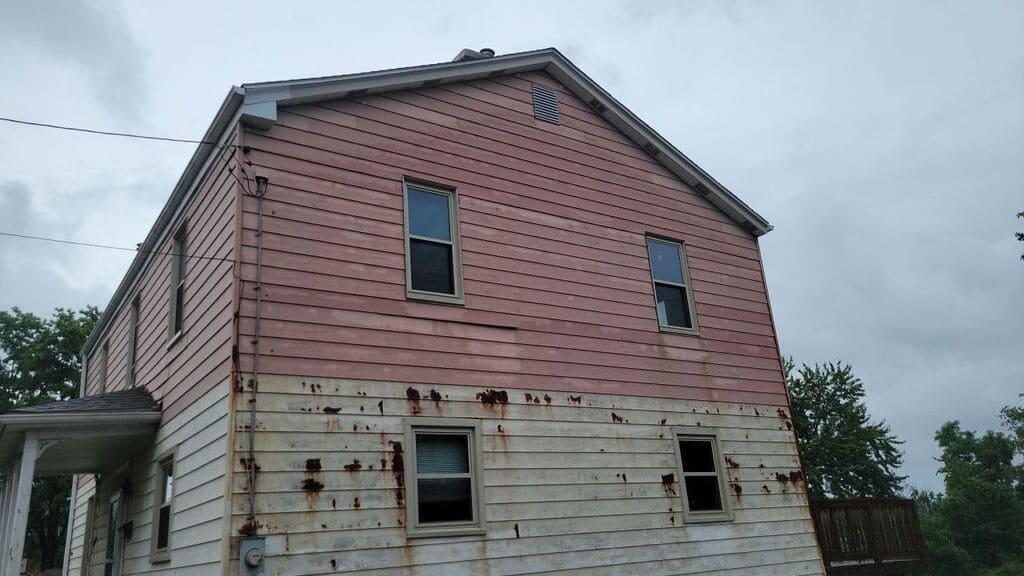
Wind and hail can cause serious damage to your home’s vinyl siding. In most cases, it’s important to have a professional assess the damage after a big storm – especially if the damage is widespread. Let’s take a look at some serious signs of wind or hail damage:
- Peeling
- Broken Pieces of Siding
- Holes
- Dings or Dents
- Chipping
- Displaced Pieces of Siding
Damage Caused by Water
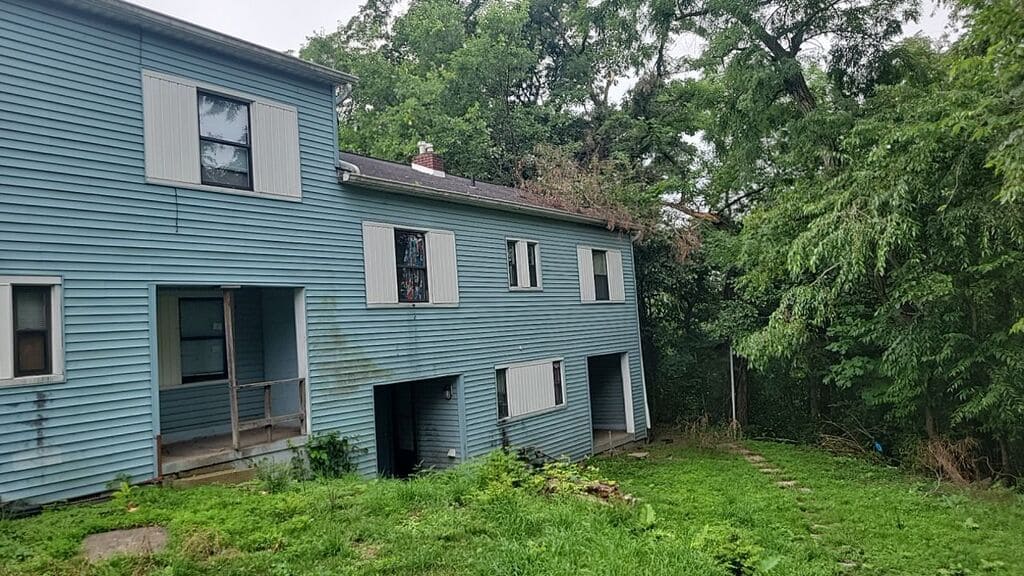
Water damage to vinyl siding can occur for a variety of reasons. One common cause is poor installation or weak repair. If the siding is not installed correctly, it can allow water to get behind it and cause damage. Another common cause of water damage is inadequate roofing. If your roof leaks, it can allow water to run down the sides of your house and cause damage to the vinyl siding.
Typically, the best way to repair water damaged siding is to simply replace it. Otherwise, it could grow into the following problems:
- Black Mold on House Siding (or, other kinds of mold)
- Mildew & Rotting in the Sheathing or Wall Foundations
- Insect Infestations
Proper Installation is Key
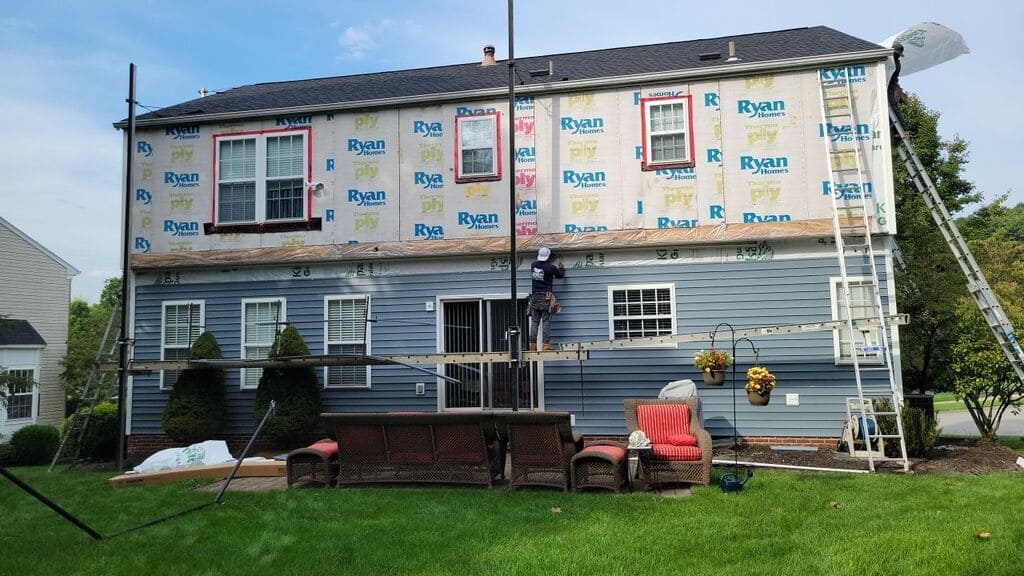
While vinyl siding is a great option for many homeowners, there are potential problems that can arise if it’s not installed properly.
- First, if the contractor doesn’t have experience working with this material, leaks are common.
- Second, vinyl siding is susceptible to damage from high winds, so it’s important to make sure it’s installed securely.
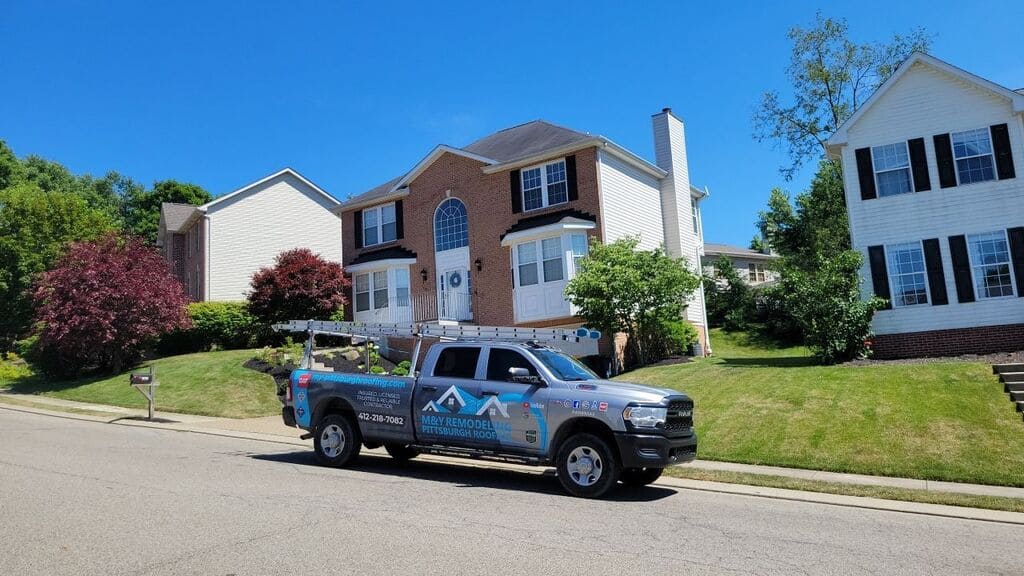
If you’re considering vinyl siding for your home, make sure to do your research and hire a reputable contractor in the Pittsburgh area. MY Pittsburgh Roofing is the #1 Pittsburgh roofing company that can replace or repair vinyl siding. We are certified and licensed professionals by one of the most reputable manufacturer for the vinyl siding MASTIC by PlyGem. We are here to help!

